Celebrating 30 Years of Women's Health Research: The Impact of the Women's Health Initiative
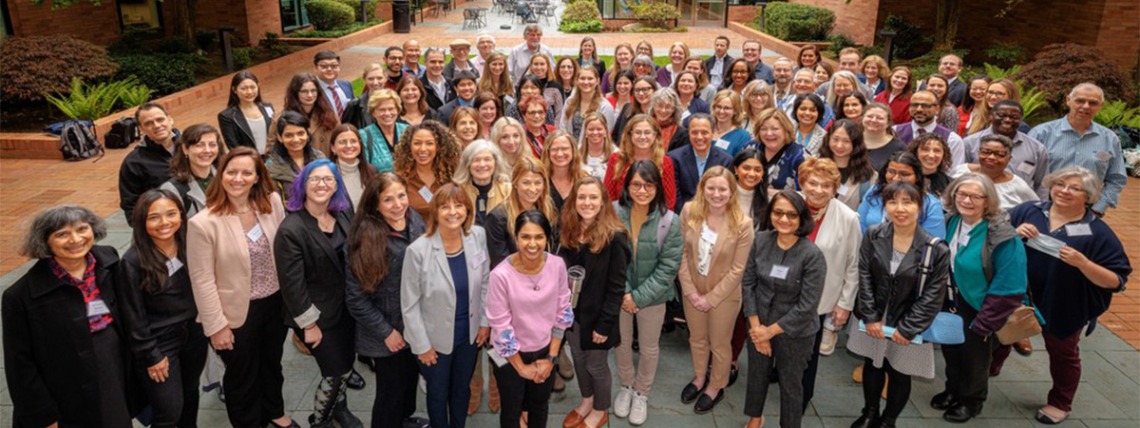
This year the Women’s Health Initiative celebrates 30 years of transformative research on health for postmenopausal women, and researchers at the University of Arizona’s Zuckerman College of Public health have been contributing and collaborating on the Initiative since 1993 to advance women’s health.
Story by Bethany Shaheen
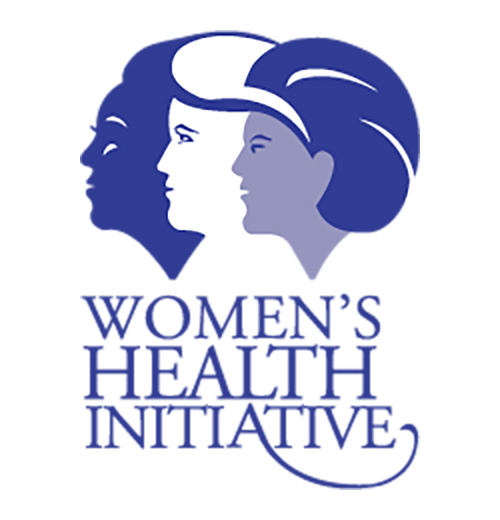
For the past three decades, the Women’s Health Initiative (WHI) has been at the forefront of research to advance our knowledge about the health of postmenopausal women. The knowledge gained by the WHI has transformed clinical and public health practice for women across the United States. Researchers from the University of Arizona’s Zuckerman College of Public Health have been vital contributors to the WHI since 1993, recruiting participants from diverse populations and collecting critical body composition data.
From the college, Dr. Cynthia Thomson and Dr. Zhao Chen have both played key roles in the WHI while fostering a culture of mentorship for young researchers, strengthening community among women, and advancing women’s health research across generations. A first-of-its-kind study, the funding and direction from the WHI have helped to train multiple generations of female scientists who have expanded the study of women’s health and pushed to promote health equity for women in all communities.
Announced in 1991 by the National Institutes of Health (NIH) with funding from the National Heart, Lung, and Blood Institute (NHLBI), the WHI is one of the most extensive and longest-running health studies ever conducted, with a focus on understanding major health issues affecting postmenopausal women, including heart disease, breast and colorectal cancer, and osteoporosis.
A Brief History of the WHI
In the early 1990s, health researchers looked around and realized that the majority of health-related data was collected from Caucasian males. Research participants were typically in early adulthood, with the upper limit of participants’ age around 65 years. This sample group left significant gaps in our knowledge about women’s health that needed to be addressed. From this realization, a revolutionary study was born: The Women’s Health Initiative.
The WHI initially enrolled more than 161,000 women across the United States from ages 50-79 to explore how various factors, such as hormone therapy, dietary habits, and supplements impact long-term health outcomes for women. The study consisted of four research trials: two hormone trials, a dietary modification trial, and a vitamin D and calcium supplement trial. Along with the four trials, the researchers conducted a long-term observational study. The wealth of data collected from this research has provided groundbreaking discoveries that have influenced medical guidelines, public health policies, and clinical practices.
One of the WHI’s most significant findings came from its hormone therapy trials. When the study began, hormone therapy (HT) was widely used to alleviate symptoms of menopause and was believed to offer protection against heart disease. However, in 2002, the WHI published a landmark report showing that HT not only failed to prevent heart disease but also increased the patient’s risk of breast cancer, stroke, and pulmonary embolism. This pivotal discovery led to a dramatic decline in HT use, which in turn reduced the number of breast cancer cases each year in the United States by an estimated 12,600. In 2014, an economic analysis of the effects of the HT trial concluded the net return on investment to be $37.1 billion.
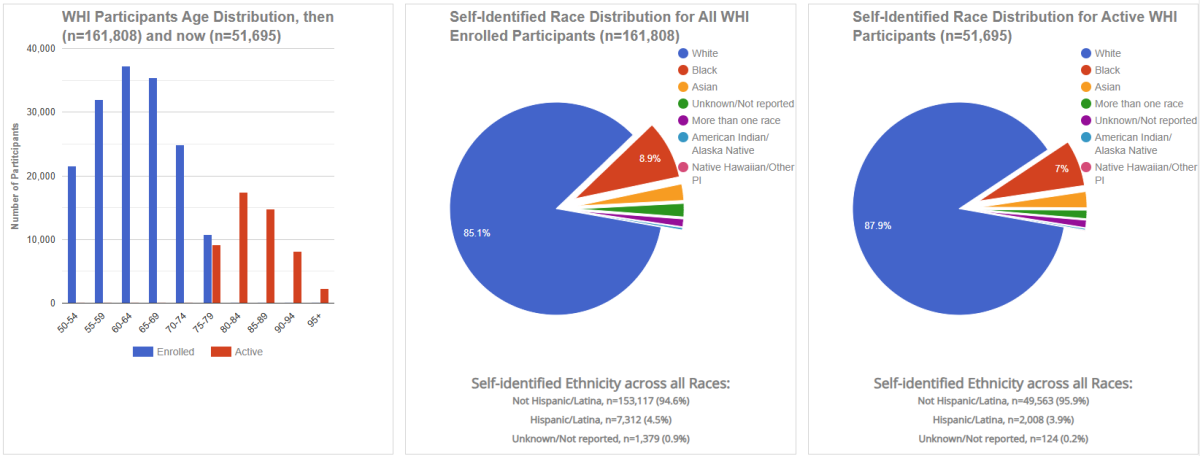
In addition to that groundbreaking finding, there have been over 2,400 papers published using WHI data, two WHI extension studies with 115,400 women and 93,500 women enrolled, and more than 500 ancillary studies approved. Through these publications and ongoing research studies, the WHI continues to provide insight into numerous other health issues affecting women, including endometriosis, sarcopenia, dementia, diabetes, and autoimmune diseases.
Over time, the WHI study has expanded to include more assessments in diverse populations, providing critical data on health disparities among women of different racial and ethnic backgrounds. This has allowed researchers to better understand how social, economic, and environmental factors influence women’s health outcomes. The overall impact of the WHI cannot be overstated: it has led to a deeper understanding of how lifestyle, prevention, and treatment strategies can improve the health and longevity of women, and it continues to pave the way for female researchers and future women’s health research.
The University of Arizona contribution to WHI
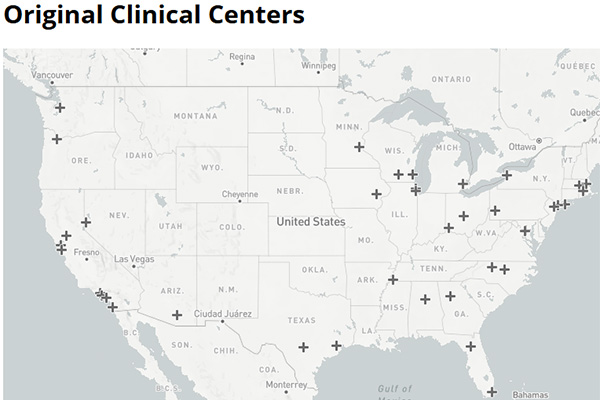
The University of Arizona (U of A) joined the WHI study in 1993 as one of 16 vanguard sites, where preliminary data could be collected and research protocols could be tested. By 1994, the study fully launched with 40 sites nationwide, and that is why this year is the 30th Anniversary of WHI. Researchers from the U of A recruited participants from our community’s aging population, Hispanic population, and Native American communities to diversify the cohort. Significantly, U of A recruited nearly 150 Native American women, which was vital for the success of the study. The University of Arizona also was one of three WHI study sites to collect body composition data such as bone density with DXA scans (the dual-energy X-ray absorptiometry scan is a painless, low-dose X-ray that measures bone density and body composition), even utilizing a mobile DXA scanner to reach more remote and rural populations.
Since 1993, many senior faculty, junior faculty, staff, and students from the college have worked on recruitment, data collection, and data analysis for WHI, and they have published many research papers based on WHI data. Two of our own distinguished faculty, Dr. Cyndi Thomson and Dr. Zhao Chen, have both worked on WHI for more than 20 years, and they both earned leadership roles within the study.
Over the past decades, women’s health research has become a notable strength in our Mel & Enid Zuckerman College of Public Health (MEZCOPH) and several current faculty began by working with WHI data as students. Dr. Jennifer W. Bea, Dr. Leslie Farland, and Dr. Nicole Yuan are each currently funded by the NIH or other agencies for research that utilizes the rich bank of WHI data. We are pleased to highlight the contributions from some of our college’s faculty, staff, and alumni along with their reflections on the impact of the WHI study.

Dr. Cynthia Thomson, PhD, RD
Retired Professor, Health Promotion Sciences, MEZCOPH
Former WHI Site Principal Investigator, Executive Chair, and Steering Committee Chair
Dr. Thomson, a registered dietitian, was first invited to join the WHI in 1994 to work on the dietary modification trial. She helped with enrollment and other peripheral roles before being invited into leadership activities. Under the mentorship of Drs. Cheryl Ritenbaugh and Tamsen Bassford, Dr. Thomson became involved with leadership team activities. Eventually she served as Principal Investigator (PI) for the University of Arizona’s WHI site, as Lead for the WHI Publications & Presentations Committee, and eventually as the Executive Chair of the WHI Steering Committee (2022-2024). Throughout her tenure with WHI, Dr. Thomson has been a strong proponent of mentoring the next generation of WHI scientists. She mentored over 20 pre- and post-doctoral Fellows as well as Early Career Investigators in the use of WHI data for professional publications and scientific presentations.
In addition to countless publications, one of Dr. Cyndi Thomson’s proudest contributions has been developing the WHI scientific webinar series to ensure WHI participants are informed of the WHI research findings, and that accurate and timely information is disseminated to the public. The webinars, initiated in 2020, also helped WHI women to combat loneliness and isolation during and after the pandemic. Since 2020, researchers have hosted quarterly calls where women can connect with each other, listen to speakers, and hear the results of WHI trials and related publications. Webinars have included topics such as physical activity and health, healthy eating, heart disease prevention, fall risk reduction, and more. When reflecting on how the WHI impacted her own career, Dr. Thomson stated, “the WHI connected me with other female scientists who gave me immeasurable support throughout my career. It helped me to become a leader in women’s health.”

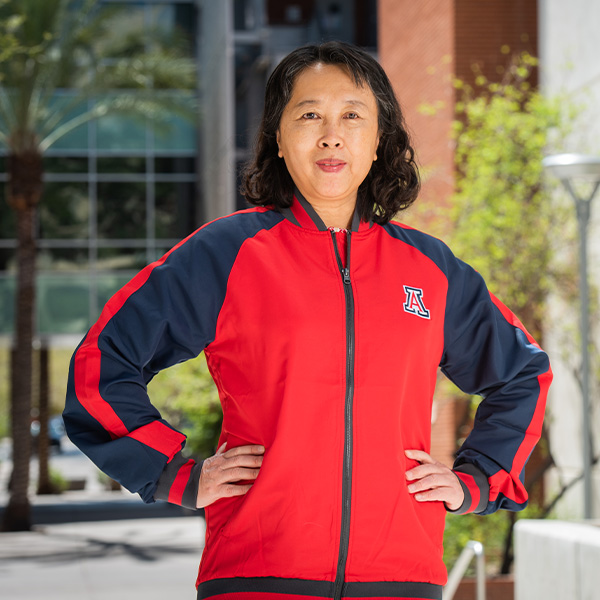
Dr. Zhao Chen, PhD, MPH
Associate Dean for Research
Distinguished Professor in Epidemiology and Biostatistics, MEZCOPH
WHI COVID-19 Special Interest Group Leader, Ancillary Study Committee Member
Dr. Zhao Chen began working with WHI in 1994 as a graduate student in coordination with the DXA Center for Bone and Body Composition Measures and helped recruit minority populations, especially Native American women. After receiving her PhD in 1996, Dr. Chen joined the Calcium and Vitamin D trial committee, focusing on research into hip geometry, anemia, muscle mass change, and other body composition changes in post-menopausal women from diverse racial and ethnic groups. One particularly impactful finding within Dr. Chen’s early WHI research was that women with breast cancer have an increased risk of fracture after their cancer diagnosis. Among her published papers, one details the connections between bone density and breast cancer. Her work on this topic was used to develop clinical guidelines and she was interviewed by “Good Morning America.”
“WHI has an incredibly supportive environment,” said Dr. Chen. “There are many opportunities for new researchers to join senior investigators across the nation on papers and grants, and the data continues to be a tremendous resource for our research community at U of A.”
As a distinguished professor in Epidemiology, Dr. Chen has been introducing WHI to her students. The WHI data is uniquely accessible and the infrastructure for it is strong, characteristics that make it ideal to train epidemiology students in data analysis. Many of Dr. Chen’s students go on to publish papers and continue their careers as WHI investigators because of the exposure she gives them through her course and research mentoring.

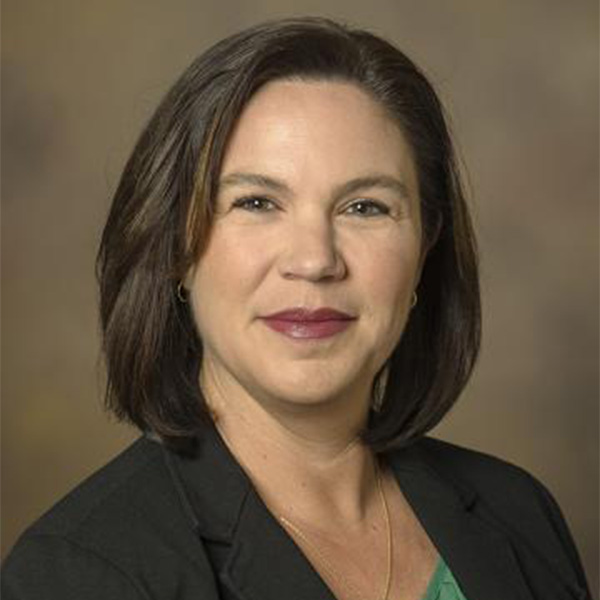
Dr. Jennifer W. Bea, PhD
Associate Professor in Health Promotion Sciences, MEZCOPH
Dr. Bea was introduced to the WHI during her post-doc between 2007 and 2010. She became a WHI co-investigator at the University of Arizona in 2010, and she continues as an active WHI investigator today. Her research range includes body composition, physical function, and lifestyle interventions, specifically in post-menopausal women. She is currently writing a paper looking at body composition and various cancers while re-examining the WHI DXA scan data.
Dr. Bea was originally introduced to the WHI through the collective mentorship of Drs. Patty Thompson, Cyndi Thomson and Zhao Chen (University of Arizona). When reflecting on the importance of the WHI, Dr. Bea notes, “In addition to the important research, the WHI is incredible at building future researchers. As an early-career faculty member, it’s difficult to land a large study and get funded. However, the WHI is full of opportunities to collaborate, learn, and grow as a researcher.” The culture of mentorship she experienced through WHI is exactly what she wants to create and foster in her laboratory, in the Cancer Center, and in the College.

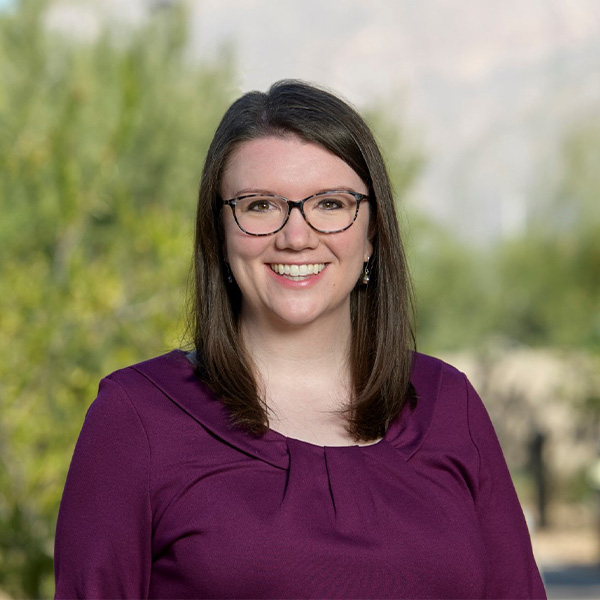
Dr. Leslie Farland, ScD, MSc
Associate Professor in Epidemiology and Biostatistics, MEZCOPH
When Dr. Farland joined the faculty at U of A in 2018, she knew she wanted to study women’s health. Issues related to gynecological health and reproductive health such as infertility, PCOS, and endometriosis still had many unanswered questions and became focal points of Dr. Farland’s research.
As an early-career faculty member, Dr. Farland found ample opportunities to collaborate and grow through the WHI network and data, earning an R03 grant that allowed her to analyze WHI data related to infertility and various cancers. “The culture of the WHI is more than just mentorship. WHI provides free access to data, the ability to collaborate on other scientific proposals, and transparency in data sharing,” explains Dr. Farland. With much of her career ahead of her, she hopes that the WHI continues to grow and thrive beyond the original participants, and that women’s health research continues to fill in the many persisting gaps in knowledge.

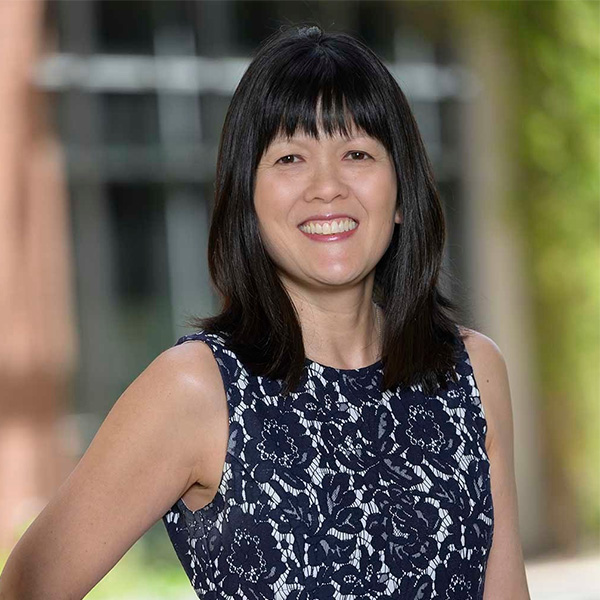
Dr. Nicole Yuan, PhD, MPH
Associate Professor in Health Promotion Sciences, MEZCOPH
Dr. Yuan was introduced to the WHI by Dr. Cyndi Thomson around 2016. She joined a team that studied the relationship between marital transitions, health behaviors, and health indicators in postmenopausal women. Today, Dr. Yuan works with Dr. Zhao Chen and others in the college using WHI data to study the relationship between obesity and depression among postmenopausal women.
Recognizing the impact that the WHI has had on her own research, Dr. Yuan encourages others who are committed to women’s health to seek opportunities with the WHI dataset: “It provides a unique opportunity to conduct research that promotes the health and wellbeing of post-menopausal women in the U.S.” she shares. “By conducting studies with the WHI data, I have developed new collaborations with UA faculty and students and expanded my research interests.”


Dr. Shawna Follis, PhD, MS
Instructor in Epidemiology and Population Health, Stanford University
An alumna of the University of Arizona, Dr. Follis was introduced to the WHI while earning her PhD in epidemiology. As part of a project in Dr. Chen’s course, Dr. Follis used WHI data to write a paper and became acquainted with the WHI cohort. After graduating with her PhD, Dr. Follis earned a post-doctoral fellowship at Stanford University, where she now conducts research as an Instructor in the Faculty.
Dr. Follis’s research focus began with health disparities and the connection between psychosocial stress and body composition, and over the course of her career her focus has shifted to investigsate the structural determinants of health. “I’m proud of the University of Arizona and WHI for recruiting Latina and Native American women to the study,” states Dr. Follis. Like many other early-career investigators, she explains, “the WHI invests in junior researchers, facilitates strong mentorship for us, and gives junior investigators opportunities to connect and grow within the WHI network.”


Dr. Nicole C. Wright, PhD, MPH
Associate Professor, Tulane University School of Medicine
Dr. Wright was introduced to WHI while enrolled as an MPH student at the University of Arizona when she applied for a student worker position in Dr. Chen's Healthy Aging Lab. Her initial job was consenting patients for a WHI study validating body composition data derived from DXA with that of MRI. After getting more involved with various projects out of the Healthy Aging Lab, it became clear that population health research would make the biggest impact with her career, and she decided to pursue a PhD in Epidemiology.
Due to personal and family history, Dr. Wright has always been focused on bone health, so working with the WHI allowed her to build a research career in that area. Over time she shifted her focus to equity in bone health, highlighting the disparities in osteoporosis management and outcomes in women of color. “To this day, the WHI is still the largest, most diverse cohort study focusing on women's health including bone health,” notes Dr. Wright. “Without the WHI, we wouldn’t have as much information on breast cancer, cardiovascular and bone health in older women, particularly older women of color, nor on the overall health and wellness of women after menopause.” Dr. Wright credits much of her success to the WHI from not only a data perspective, but also from the mentoring and connections made from working with WHI investigators.

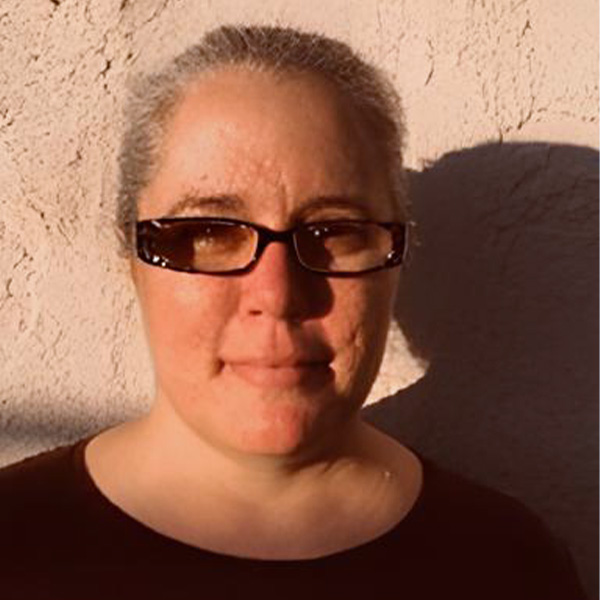
J. Skye Nicholas, MPH
Research Program Coordinator, University of Arizona R. Ken Coit College of Pharmacy
Ms. Nicholas, from a Native American cultural background, worked with the WHI from 2000-2004, helping with data collection among Native American participants enrolled in Arizona. A University of Arizona student at the time, she worked with the DXA scan cohort, focusing on body composition and hip geometry. That position was her first opportunity to work on a large research project, and began her career in research centered on older adults.
With a masters in epidemiology, Ms. Nicholas still works for the University of Arizona currently with a study looking at medication adherence. “The WHI data was the first of its kind with a pure focus on older women’s health,” states Ms. Nicholas. “It continues to have an immeasurable impact on women’s health today.”

The Future of Women’s Health
As we celebrate three decades since the full launch of the WHI study, it is important to acknowledge the dedication of the many women who participated. Many of the women in the study, now into their 80s and 90s, are still active participants in surveys, video calls, and annual updates. In 2019, the oldest active participant in the WHI turned 103, and the average age of the women still active at that time was 83 years. Without their participation, the new knowledge about women’s health revealed by WHI would not have been possible.
The COVID-19 pandemic brought new health-related challenges and concerns across the globe, and certainly affected the women who were still participating in the WHI studies. Their dedication to science and health continues to shine, with over 50,000 women responding to the latest COVID-19 survey sent to active participants.
The WHI’s work is far from finished. Ongoing follow-up studies continue to explore the long-term effects of aging and disease prevention in women, promising to generate even more life-saving knowledge in the years to come. Looking ahead, the WHI will remain a cornerstone of women’s health research, providing a model for large-scale, long-term studies that can address complex health issues.
By providing a new foundation of knowledge about women’s health, the legacy of the WHI is empowerment. The study has given women, healthcare providers, and policymakers the information needed to make decisions that improve health and well-being for generations to come. The future of women’s health and women’s health research is brighter thanks to the tireless work of so many WHI researchers, including many from our own college. The ongoing commitment to women’s health from a new generation of researchers promises to build on the legacy and profoundly shape the future of public health.

